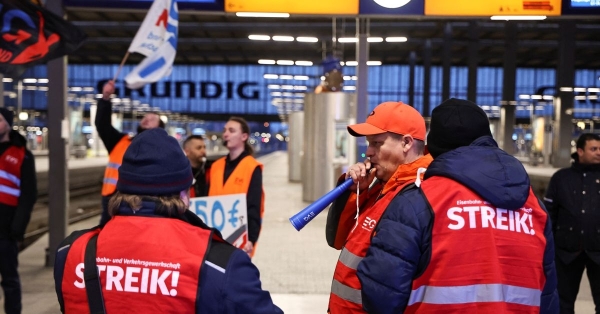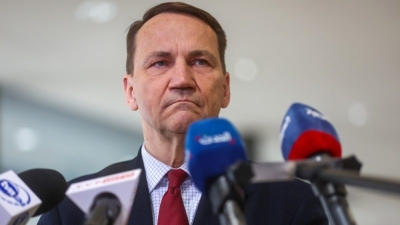In inflation-hit Germany, massive strike over pay to cripple transport

Both sides fought hard in the hours leading up to the strike. Union bosses warned that significant pay increases were necessary for thousands of workers. Management called the demands and the resulting action "completely unreasonable".
These strikes, which are expected to start around midnight and continue throughout Monday, are the latest industrial action in months that have affected major European economies due to higher energy and food prices affecting living standards.
Germany, which was dependent heavily on Russia for its gas supplies before the conflict in Ukraine, has been especially hard hit by rising inflation. Inflation rates have surpassed the average for the Euro-area in recent months.
German consumer prices rose faster than expected in February, up 9.3% compared to one year ago. This indicates that there has been no slowing down in stubborn cost pressures, which the European Central Bank tried to manage with a series interest-rate hikes.
Millions of workers across the country have had to adjust after years of relatively stable prices. Rents and butter are now more expensive.
Frank Werneke of Verdi, the head of the union’s labour union, said that it was a matter for survival for thousands of employees to receive a substantial pay increase. Bild am Sonntag
France also experienced a string of strikes and protests starting in January, as anger mounts at the government’s attempt for a two-year increase in the state pension age to 64.
AdvertisementOfficials in Germany, however, have made it clear that they are not interested in a pay-off.
The Verdi union negotiates on behalf of approximately 2.5 million public sector employees, which includes public transport workers and airport staff. EVG, the railway and transport union, negotiates on behalf of around 230,000 employees at Deutsche Bahn (DBN.UL), and bus companies.
Verdi wants a 10.5% wage rise, which would mean that pay will increase by at most €500 each month. EVG, on the other hand, is asking for a minimum 12% raise, or €650 monthly.
Deutsche Bahn said on Sunday (26 March) that the strike was "completely exaggerated, groundless, and unnecessary".
Employers warn that rising wages for transport workers will lead to higher fares and higher taxes.
Share this article:



